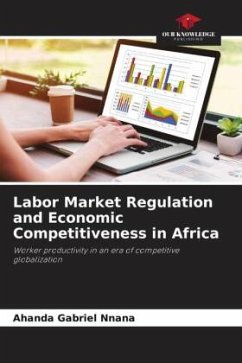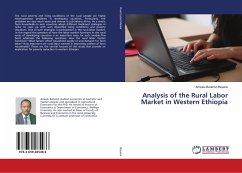The objective of this research is to analyze the effect of labor market regulation on economic competitiveness in Sub-Saharan Africa. To do so, we considered a set of 38 countries for the period 2000-2018, using data from various secondary sources such as the World Bank, the Faser Institute, UNCTAD and the Observatory of Economic Complexity. In this respect, we have respectively in a first and second step analyzed the effect of labor market regulation based on a composite indicator entitled LABOR MARKET REGULATION on workers' productivity and on economic complexity. The estimation methods used are GMM and DMC for the first and second part of our research respectively. The results show that labor market regulation has a positive effect on economic competitiveness in a global way.
Bitte wählen Sie Ihr Anliegen aus.
Rechnungen
Retourenschein anfordern
Bestellstatus
Storno








